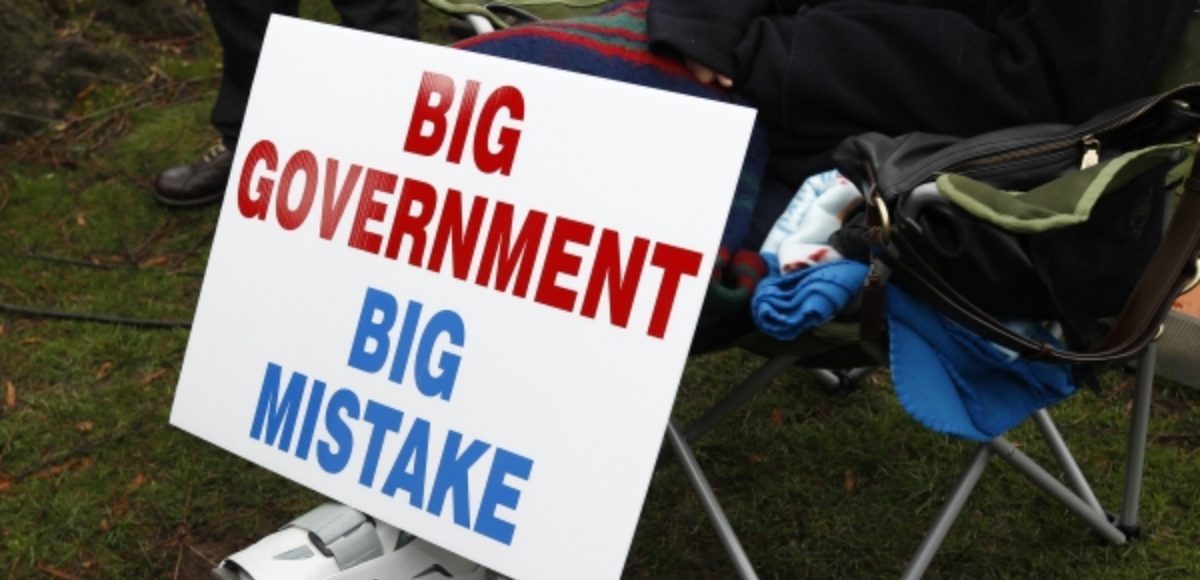

A protestor rests next to their big government big mistake sign. (Photo: Reuters)
I explained last year that there is an inverse relationship between government efficiency and the size of government. And Mark Steyn made the same point, using humor, back in 2012.
Interestingly, we have some unexpected allies.
In a recently released study, two economists for the World Bank decided to investigate the effectiveness of government spending.
Governments of developing countries typically spend resources equivalent to between 15 and 30 percent of GDP. Hence, small changes in the efficiency
of public spending could have a significant impact on GDP and on the attainment of the government’s objectives. The first challenge faced by stakeholders is measuring efficiency. This paper attempts such quantification and verifies empirical regularities in the cross country-variation in the efficiency scores.
So they calculated how much different governments were spending and the results that were being achieved.
Using two different methodologies, here’s what they found for health spending and life expectancy.
The goal, of course, is to get good results (to be higher on the vertical axis) without having to spend a lot of money (in other words, try to be farther left on the horizontal axis).
And here are the numbers for education quality and education spending.
The economist then crunched all the numbers to determine the relationship between spending and outcomes.
The results may surprise some people.
Government expenditure (GOVEXP) is negatively associated with efficiency scores in education (Tables 14 a and b). This result is robust to changes in the output indicator selected. In the output efficiency case, the impact is ambiguous specially when the PISA Math and Science scores are the output indicators (Table 14 b). In health (Tables 15 a and b), the negative association is present in both input and output efficiency. In infrastructure, the expenditure variables (GOVEXP and PUBGFC10PC) are negative in the six output indicators that are used (Table 16a).23 There is a robust trade-off between size of expenditure and efficiency. …The share of public financing within the total (sum of public and private) is robustly associated with lower efficiency scores.
But here’s another surprise.
These World Bank results are not an outlier.
The European Central Bank has two separate studies (here and here) that conclude smaller government is more effective.
And the International Monetary Fund found that decentralized government is more efficient.
P.S. Don’t forget that this competency argument for small government is augmented by the economic argument for small government.
The most damning journalistic sin committed by the media during the era of Russia collusion…
The first ecological study finds mask mandates were not effective at slowing the spread of…
On "What Are the Odds?" Monday, Robert Barnes and Rich Baris note how big tech…
On "What Are the Odds?" Monday, Robert Barnes and Rich Baris discuss why America First…
Personal income fell $1,516.6 billion (7.1%) in February, roughly the consensus forecast, while consumer spending…
Research finds those previously infected by or vaccinated against SARS-CoV-2 are not at risk of…
This website uses cookies.